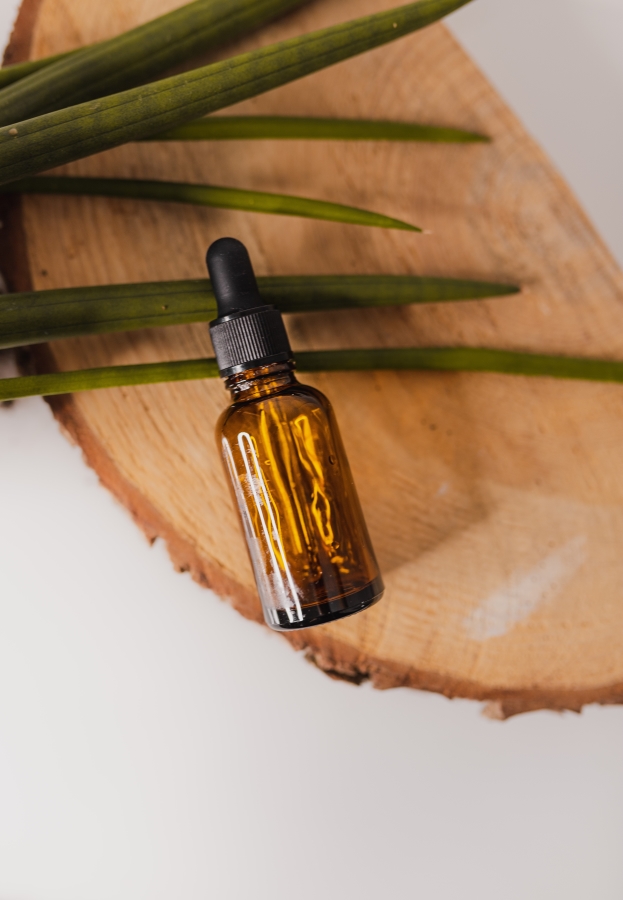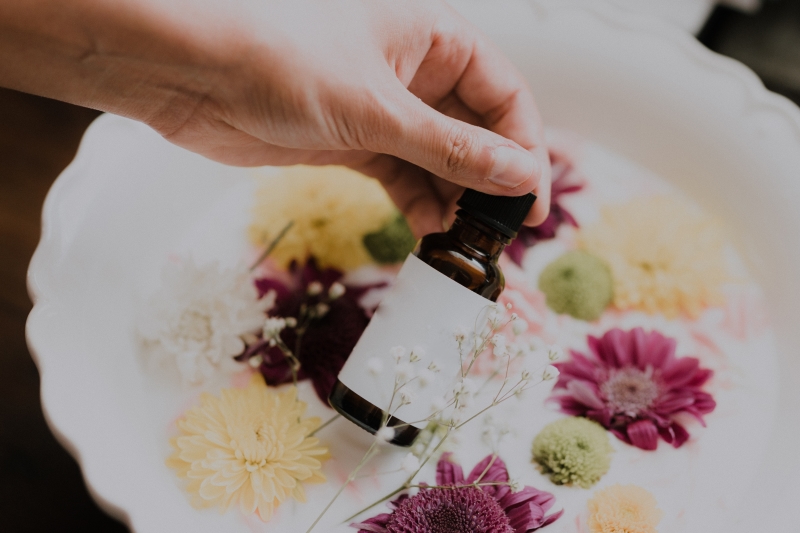Essential oils have been a part of traditional wellness practices for generations, offering a spectrum of potential benefits. However, it is important to note that these oils, including mānuka oil, can expire.
Understanding this is as crucial as recognising the differences between remedies in traditional practices to make the most of these oils and ensure their safety and effectiveness throughout their use.
Why Do Essential Oils Expire?
Essential oils follow a unique ageing process that distinguishes them from perishable items such as food. While they don’t “expire” in the conventional sense, they gradually transform due to oxidisation. This transformation occurs when the oil interacts with the oxygen in the surrounding air. Additionally, external factors, including exposure to light and heat, can notably accelerate this change.
This process resembles a slow and ongoing evolution, where essential oils adjust over time. This adjustment modifies the oil’s chemical makeup, impacting its scent, colour, and, most importantly, its therapeutic qualities. As these oils age and combine with oxygen, their effectiveness and potency may diminish.
What Is Oxidisation?
Oxidisation, in the context of essential oils, is a fundamental chemical process prompted by the interaction of the oil with oxygen, ultraviolet (UV) light, and heat. This natural phenomenon transforms the oil’s molecular structure, converting oxygen bonds into carbon bonds.
As this oxidisation process unfolds, the intricate chemical composition of the essential oil undergoes subtle yet impactful alterations. Over time, these changes result in a gradual decline in the oil’s potency and therapeutic effectiveness. The oil’s molecular integrity degradation can compromise its aroma, flavour, and, most importantly, its medicinal properties.
How Does Oxidisation Apply to Essential Oils?
When exposed to oxygen, light, heat, or other factors, essential oils undergo oxidation, which alters their composition and affects their quality.
Additionally, it is essential to highlight that oxidation doesn’t solely influence conventional essential oils; it also impacts particular varieties, including mānuka oil. Renowned for its distinctive properties, mānuka oil is susceptible to oxidisation, compromising its unique attributes. Hence, understanding and effectively addressing oxidation becomes crucial when dealing with specialised essential oils to maximise their aromatic and therapeutic benefits.
Read everything you need to know about mānuka oil here.
How To Extend An Essential Oil’s Shelf Life
Extending the shelf life of essential oils is a matter of good practice. These practical guidelines are vital to achieving this goal:
- Proper Sealing: Always seal essential oil bottles tightly when not in use to prevent oxygen exposure, which can lead to oxidation and alter the oil’s aroma and therapeutic properties.
- Utilise Dark Amber Bottles: Use dark amber or cobalt blue bottles for storage to shield the oils from light. These dark colours block harmful UV rays, protecting the oils from light-induced degradation and maintaining their freshness and potency.
- Shield from Light and Heat: Store essential oils in a cool, dark place away from direct light and excessive heat. This method prevents accelerated oxidation, maintaining the oil’s chemical composition and ensuring its longevity and therapeutic benefits.
What Is the Shelf Life of Mānuka Oil?

The shelf life of mānuka oil, similar to many essential oils, can vary depending on factors such as:
- Storage conditions
- Quality of the oil
- Whether it’s been properly sealed and protected from environmental factors
Pure and high-quality mānuka oil has a shelf life of 2 to 3 years, given that it has been stored correctly.
What is the Shelf Life of Common Essential Oils?
Typically, essential oils remain in good condition for around 2 to 5 years when stored in dark glass containers, protected from direct light and heat. However, certain oils such as Patchouli, Sandalwood, and Vetiver can often maintain their quality for longer periods, extending to 6 to 8 years.
It’s important to note that these timeframes are general estimates and can vary based on factors
1-2 YEARS SINGLE OIL SHELF LIFE
| Common Name | Scientific Name |
| Frankincense Serrata Co2 | Boswellia serrata |
| Grapefruit Pink | Citrus x paradisi |
| Lemon | Citrus x limon |
| Lime | Citrus x aurantifolia |
| Mandarin | Citrus reticulata |
| Orange Blood | Citrus sinensis |
| Orange Sweet | Citrus sinensis |
| Tangerine | Citrus reticulata |
| Yuzu | Citrus junos |
2-3 YEARS SINGLE OIL SHELF LIFE
| Common Name | Scientific Name |
| Balsam Fir | Abies balsamea |
| Bergamot | Citrus bergamia |
| Black Pepper | Piper nigrum |
| Camphor | Cinnamomum camphora |
| Catnip | Nepeta cataria |
| Chamomile German | Matricaria chamomilla |
| Chamomile Roman | Chamaemelum nobile |
| Coffee | Coffea arabica |
| Copaiba | Copaifera officinalis |
| Cypress | Cupressus sempervirens |
| Davana | Artemisia pallens |
| Dill Weed | Anethum graveolens |
| Elemi | Canarium luzonicum |
| Fir Needle | Abies sibirica |
| Fragonia | Taxandria fragrans |
| Frankincense Essential Oils (all types) | |
| Helichrysum Italicum | Helichrysum italicum |
| Jack Pine | Pinus banksiana |
| Juniper Berry | Juniperus communis |
| Kunzea | Kunzea ambigua |
| Lemongrass | Cymbopogon flexuosus |
| Mānuka | Leptospermum scoparium |
| May Chang | Litsea cubeba |
| Melissa | Melissa officinalis |
| Neroli | Citrus x aurantium |
| Nutmeg | Myristica fragrans |
| Pine Scots | Pinus sylvestris |
| Ravensara | Ravensara aromatica |
| Rosemary 1,8 Cineole | Rosmarinus officinalis |
| Saro | Cinnamosma fragrans |
| Spearmint | Mentha spicata |
| Spruce | Tsuga canadensis |
| Tea Tree | Melaleuca alternifolia |
3-4 YEARS SINGLE OIL SHELF LIFE
| Common Name | Scientific Name |
| Balm Mint Bush | Prostanthera melissifolia |
| Basil Linalool | Ocimum basilicum |
| Cajeput | Melaleuca cajuputi |
| Cardamon | Elettaria cardamomum |
| Carrot Seed | Daucus carota |
| Chamomile German C02 | Matricaria chamomilla |
| Cinnamon Cassia | Cinnamomum cassia |
| Cinnamon Bark | Cinnamomum verum |
| Citronella | Cymbopogon winterianus |
| Clary Sage | Salvia sclarea |
| Coriander Seed | Coriandrum sativum |
| Eucalyptus Dives | Eucalyptus dives |
| Eucalyptus Globulus | Eucalyptus globulus |
| Fennel Sweet | Foeniculum vulgare |
| Frankincense Carteri CO2 | Boswellia carteri |
| Ginger Root CO2 | Zingiber officinale |
| Ho Wood | Cinnamomum camphora |
| Jasmine Absolute | Jasminum sambac |
| Laurel Leaf | Laurus nobilis |
| Lavandin | Lavandula x intermedia |
| Lavender | Lavandula angustifolia |
| Myrrh | Commiphora myrrha |
| Petitgrain | Citrus x aurantium |
| Rosalina | Melaleuca ericifolia |
| Star Anise | Illicium verum |
| Thyme Linalool | Thymus vulgaris |
| Thyme Thymol | Thymus vulgaris |
| Vanilla Oleoresin | Vanilla planifolia |
4-5 YEARS SINGLE OIL SHELF LIFE
| Common Name | Scientific Name |
| Amyris | Amyris balsamifera |
| Allspice | Pimenta dioica |
| Blue Cypress | Callitris intratropica |
| Blue Tansy | Tanacetum annuum |
| Cedarwood Essential Oils (all types) | |
| Cinnamon Leaf | Cinnamomum verum |
| Clove Bud | Syzygium aromaticum |
| Geranium Bourbon | Pelargonium x asperum |
| Geranium Egyptian | Pelargonium x asperum |
| Palmarosa | Cymbopogon martini |
| Peppermint | Mentha x piperita |
| Rose Absolute | Rosa x centifolia |
| Rose Otto | Rosa x damascena |
| Sage Dalmation | Salvia officinalis |
| Turmeric CO2 | Curcuma longa |
| Valerian Root | Valeriana jatamansi |
| Vanilla CO2 | Vanilla planifolia |
| Wintergreen | Gaultheria procumbens |
| Ylang Ylang Complete | Cananga odorata |
| Ylang Ylang Extra | Cananga odorata |
6-8 YEARS SINGLE OIL SHELF LIFE
| Common Name | Scientific Name |
| Buddha Wood | Eremophila mitchellii |
| Patchouli | Pogostemon cablin |
| Sandalwood Australian | Santalum spicatum |
| Sandalwood Indian | Santalum album |
| Vetiver | Vetiveria zizanioides |
Can I Use Essential Oils After The Expiry Date?
Essential oils do not have a strict expiration date, but they may undergo oxidation over time, affecting their quality and efficacy. Here are some practical suggestions for what you can do with essential oils that have reached this stage:
- Diffusion: Use slightly oxidised essential oils for aromatherapy. If you find the aroma pleasant, it is safe to use in diffusers to enjoy the scent.
- Laundry: To keep your fabrics smelling fresh, add a drop or two of slightly oxidised essential oil to your laundry. However, avoid applying oils directly to fabric to prevent potential staining or damage.
- Cleaning: Repurpose oxidised essential oils for cleaning purposes. You can use them in homemade cleaning products, such as refrigerator deodorisers, window sprays, potpourri, or cleaning fizzes.
- Upcycling: Remember to discard empty essential oil bottles. Alternatively, save these for various creative projects and DIY activities, from storing small craft supplies to making homemade air freshener containers.
It is essential to trust your senses when using slightly oxidised essential oils. Suppose the aroma is still pleasing, and they haven’t developed any off-putting odours or colours. In that case, you can find new ways to use them daily, even if they are no longer suitable for therapeutic or aromatherapeutic purposes.
How Can I Tell if my Essential Oil is Expired?
After unsealing a bottle of essential oil, it is advisable to maintain a record of its usage duration. A practical approach is to use a marker to inscribe the opening date on the label. To determine its suitability for use, refer to the provided charts for the estimated shelf life and consider discarding the oil when it expires.
In cases where the oil lacks a date marker, here are alternative signals that might indicate it’s time to dispose of it:
- Sensory Changes: Be observant of any noticeable alterations in the aroma of the oil. If the scent significantly differs from its initial aroma when uncorked, it may indicate deterioration.
- Visual Clues: Inspect the oil’s colour and clarity. A shift in hue or the development of cloudiness can be a sign of chemical changes, potentially making the oil less suitable for use.
- Texture and Consistency: Assess whether the oil’s consistency has markedly changed. If it has become notably thicker or thinner than when first opened, it could suggest a decline in quality.
What Is the Best Way to Dispose of Expired Essential Oils?
When disposing of expired essential oils, it is necessary to follow the correct procedures to avoid clogging pipes or harming the environment. Here’s a guide on how to properly dispose of old essential oils, including mānuka oil:
- Check Local Regulations: Find out the rules for disposal in your area by contacting local authorities.
- Contact Waste Services: If you have a waste management service, ask them how to dispose of the oils safely.
- Recycling Centers: Look for local recycling or hazardous waste centres that accept essential oils.
- Reuse: If the oil is only slightly expired, use it for non-therapeutic purposes like cleaning or crafting.
- Consider Donations: Some organisations may accept expired oils.
- Be Cautious with Mānuka Oil: Given its unique properties, follow disposal guidelines and consult local experts if in doubt to handle it safely.
If you want to learn more about ingesting manuka oil, read this article here.

